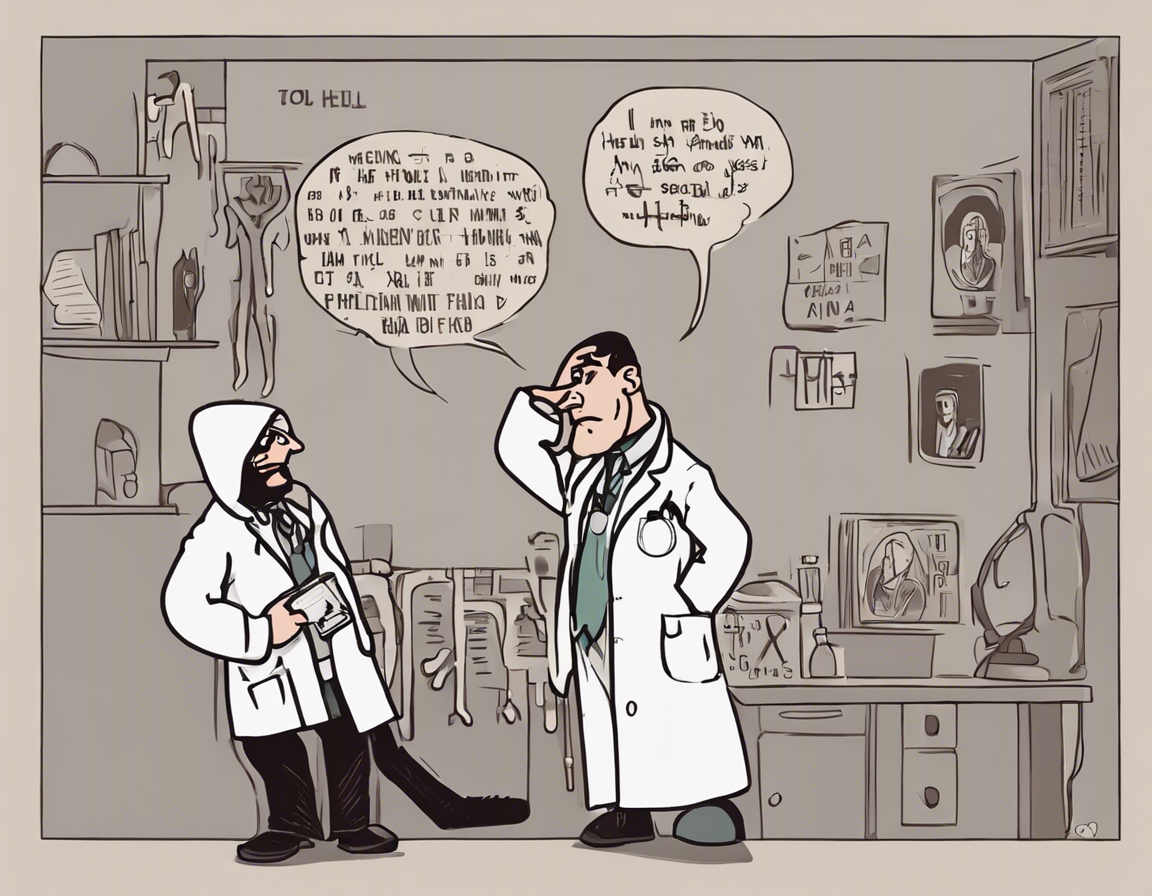Introduction:
In the realm of medicine, the role of a doctor is often seen as noble and altruistic. Doctors are viewed as healers, caregivers, and trusted advisors. However, what happens when the line between doctoring and darker intentions blurs? This article delves into the complex and controversial topic of doctoring – the practice of using medical knowledge and expertise for personal gain or unethical purposes.
The Hippocratic Oath:
The foundation of medical ethics lies in the Hippocratic Oath, a pledge taken by physicians to uphold ethical standards and prioritize the well-being of their patients. “First, do no harm” is a central tenet of the oath, emphasizing the importance of beneficence and non-maleficence in medical practice. However, throughout history, there have been instances where doctors have strayed from these principles, leading to harm and betrayal of trust.
The Dark Side of Doctoring:
One of the most notorious examples of doctoring being used for nefarious purposes is the case of Dr. Harold Shipman, a British general practitioner who was convicted of murdering 15 patients under his care. Shipman’s heinous actions shocked the medical community and the public, raising questions about the extent of a doctor’s power and the potential for abuse.
Ethical Dilemmas:
Doctoring raises complex ethical dilemmas that challenge the core principles of medicine. For example, what happens when a doctor puts their financial interests above the well-being of their patients? This conflict of interest can lead to overtreatment, unnecessary procedures, and exploitation of vulnerable individuals. In a profit-driven healthcare system, the temptation to prioritize financial gain over ethical considerations can be strong.
Abuse of Authority:
Doctors hold a position of authority and trust in society, making them vulnerable to abusing their power for personal gain. Whether it’s overprescribing medication, engaging in inappropriate relationships with patients, or conducting unnecessary surgeries, instances of doctoring can have devastating consequences for both patients and the medical profession as a whole.
Prevention and Accountability:
To combat doctoring and safeguard the integrity of the medical profession, it is essential to prioritize transparency, accountability, and ethical training. Healthcare organizations must establish clear guidelines and protocols to prevent conflicts of interest and unethical behavior. Additionally, regular ethical training and oversight can help doctors navigate the complex moral dilemmas they may encounter in their practice.
The Role of Regulation:
Regulatory bodies play a crucial role in monitoring and enforcing ethical standards within the medical profession. By holding doctors accountable for their actions and ensuring compliance with ethical guidelines, regulatory agencies help maintain public trust in the healthcare system. However, regulatory oversight alone may not be sufficient to address the root causes of doctoring, such as burnout, financial pressures, and a lack of moral education.
Conclusion:
While the vast majority of doctors uphold the highest ethical standards in their practice, instances of doctoring serve as a sobering reminder of the potential for abuse within the medical profession. By acknowledging the dark side of doctoring and taking proactive steps to address ethical lapses, the healthcare community can strive towards a future where patients’ well-being remains the top priority.
FAQs:
1. What are some common red flags that may indicate a doctor is engaging in unethical behavior?
– Sudden changes in treatment plans without valid medical reasons
– Pressuring patients to undergo unnecessary procedures or tests
– Accepting kickbacks or incentives from pharmaceutical companies
2. How can patients protect themselves from potential cases of doctoring?
– Seeking a second opinion from another healthcare provider
– Researching the reputation and credentials of their doctor
– Reporting any concerns or suspicions to the appropriate regulatory authorities
3. What are the consequences for doctors found guilty of engaging in doctoring?
– Loss of medical license
– Criminal prosecution and imprisonment
– Civil lawsuits and monetary damages
4. Are there resources available for doctors struggling with ethical dilemmas or burnout?
– Medical ethics committees and hotlines for guidance and support
– Mental health services and counseling for burnout and stress management
– Continuing education programs on ethical decision-making and professionalism
5. How can healthcare organizations promote a culture of ethical behavior among their staff?
– Providing ongoing training on ethical guidelines and standards
– Encouraging open communication and reporting of ethical concerns
– Establishing clear policies and procedures for addressing ethical lapses
6. What are some historical examples of doctoring that have had a significant impact on the medical profession?
– Thalidomide tragedy, where thousands of babies were born with birth defects due to the prescription of a harmful medication
– Tuskegee syphilis experiment, where African American men were denied treatment for syphilis without their consent
– Dr. Andrew Wakefield’s fraudulent study linking vaccines to autism, leading to a decline in vaccination rates and a resurgence of preventable diseases
7. How can patients differentiate between legitimate medical advice and potentially harmful doctoring practices?
– Seeking information from reputable sources such as government health agencies and medical associations
– Asking questions about the rationale behind treatment recommendations
– Trusting their instincts and seeking a second opinion if they have concerns about their doctor’s advice
